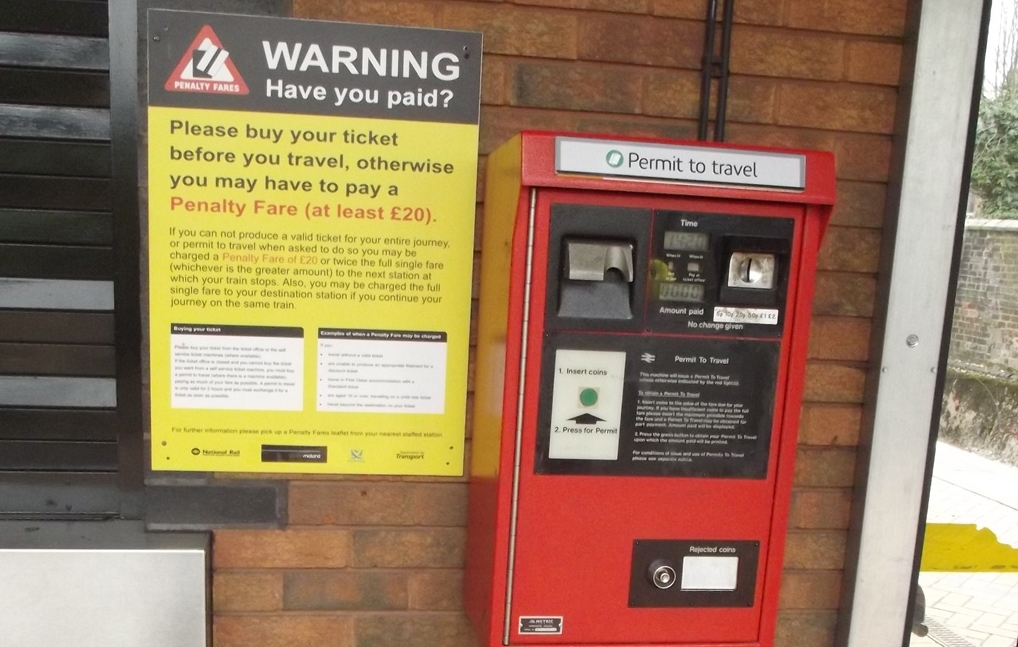Discovering a fare evasion notice in your hands can be an unsettling experience. Questions might swirl through your mind: "Is this going to end up in court?" "Could I get a criminal record?" "How will I manage these extra costs?" For many people, just reading the words "fare evasion" triggers anxiety and self-doubt, even if the incident was entirely unintentional.
As a solicitor with extensive experience in helping clients address fare evasion matters, I've seen first-hand how such situations can cause significant stress. However, it's crucial to remember that receiving a notice doesn't automatically mean you'll face insurmountable penalties or a criminal record. In this article, we'll explore practical ways to cope with the emotional impact, outline essential steps for responding effectively, and highlight the importance of seeking professional advice when needed.
1. Understanding the Emotional Impact
The Shock Factor
Few people expect to be labelled a fare evader. You might have simply forgotten to tap your card, misread your ticket's valid zones, or travelled outside your usual route. When confronted by a Revenue Protection Officer or upon receiving a letter in the post, the initial shock can be disorienting.
Common Emotions
It's normal to feel a range of emotions:
- Anxiety about potential fines or legal consequences
- Embarrassment at being perceived as dishonest
- Anger or frustration if you believe the notice is unfair
- Confusion over how to proceed or whether you should fight the allegation
Recognising these feelings is the first step towards managing them. Panicking might lead to rash decisions, such as ignoring the notice altogether or hastily paying a fee you could have appealed.
2. Taking a Step Back and Assessing the Situation
Don't Ignore the Notice
The biggest mistake you can make when feeling overwhelmed is to hide the fare evasion notice in a drawer, hoping it will go away. Transport operators usually impose strict deadlines, often 21 days, to pay or respond. Missing these deadlines increases the likelihood of extra fees or prosecution, so staying engaged is vital.
Read and Understand Every Detail
- Check the Date: Mark your calendar for the final payment or appeal date.
- Note the Allegation: Ensure you understand precisely what the operator believes you did wrong, whether it's travelling without a valid ticket, using someone else's pass, or failing to pay the correct fare.
- Look for Appeal Instructions: Many notices include a section explaining how to challenge or appeal if you believe the notice was issued incorrectly.
Seek Clarification
If the language on the notice is confusing, call the transport operator's helpline or check their website. Some operators have dedicated FAQ sections on penalty fares, which can help you better understand the process.
3. Practical Tips for Managing Stress
Take a Breather
When stress levels rise, simple coping techniques can help you stay grounded. Deep breathing exercises, short walks, or even a mindful moment of reflection can calm your mind and clarify your next moves.
Organise Your Thoughts
- Make a List: Write down the key actions you need to take, such as gathering evidence or filing an appeal.
- Set a Timeline: Divide tasks into manageable steps, ensuring everything will be completed before the deadline.
- Reach Out for Support: Talk to a friend, family member, or trusted colleague. Simply sharing the situation can lighten the emotional burden.
Consider Professional Support
For more intense anxiety, professional counselling or mental health services might be beneficial. Although fare evasion notices are usually dealt with in a matter of weeks, the psychological toll can be considerable, especially if you're already under pressure in other areas of your life.
4. Evaluating Your Options
Paying the Notice
Some people prefer to pay the penalty fare immediately, just to close the issue. This choice can be practical if you believe the notice was justified or if you find the process of appealing too stressful. However, remember: once you pay, you generally lose the right to challenge the notice.
Appealing the Notice
If you think the penalty is unwarranted, perhaps due to a faulty ticket machine, incorrect staff guidance, or an honest mistake, a formal appeal could resolve the problem. Follow the instructions provided on the notice, and submit any relevant documents or photographs that support your argument.
Preparing for a Potential Court Summons
In most instances, fare evasion matters settle before reaching court. However, if the operator deems the case serious, like a significant unpaid fare or repeated offences, they may escalate to prosecution. Although this outcome is less common, it underscores the importance of responding calmly and thoroughly at the earliest stages.
5. Gathering Evidence and Presenting Your Case
Documentation
Evidence often separates successful appeals from those rejected outright. Depending on the situation, this can include:
- Ticket receipts or screenshots of your attempted purchase
- Bank statements showing you paid for travel on specific dates or times
- Photographs of broken machines, blocked entrances, or misleading signage
- Correspondence with staff members who gave you advice on routes or ticket options
Statement of Events
If you plan to appeal, write a concise summary of what happened. Include the date, location, and any relevant details. Avoid emotional or accusatory language; instead, present the facts and explain why you believe the fare was paid correctly or that extenuating circumstances should be considered.
6. The Role of Legal Advice
When to Consult a Solicitor
If the amount involved is significant, or if you've ignored previous notices, the transport operator may seem more intent on escalating the matter. In these cases, consulting a solicitor who specialises in fare evasion can be invaluable. A legal professional can:
- Assess the Validity of the Notice: Identifying any procedural errors or misinterpretations.
- Negotiate with the Operator: Finding a settlement that avoids prosecution, especially if you have mitigating circumstances.
- Represent You in Court: Should the worst-case scenario arise, a solicitor can argue your case and potentially reduce the severity of any penalties.
Understanding the Cost vs. Benefit
While hiring a solicitor involves fees, it's wise to compare this cost with the potential risks of a court conviction, which might include a larger fine or a criminal record. For individuals in sensitive professions or industries (legal, healthcare, finance), the long-term repercussions of a conviction could overshadow legal fees.
7. How a Fare Evasion Notice Might Affect Your Future
Employment Checks
Some employers run periodic background checks, especially for roles involving financial responsibility or vulnerable people. A caution or conviction can impact your career prospects. Responding proactively to notices can help avoid these pitfalls.
Travel Plans
Criminal records can complicate international travel or visa applications, particularly to countries with strict entry requirements. Again, paying or resolving the notice before matters escalate is crucial.
Financial Strain
While penalty fares alone may be manageable, additional fines, court fees, or interest can quickly build up if you miss deadlines or ignore proceedings. Addressing the notice early can minimise financial stress.
8. Coping with a Potential Court Hearing
If you receive a letter indicating that the operator is pursuing prosecution:
Stay Calm
Although the prospect of court is intimidating, it's not always inevitable. Transport companies often allow out-of-court settlements, especially for first-time offences or where mitigating circumstances exist.
Seek Legal Guidance
If your case proceeds, a solicitor can review the evidence, craft a solid defence, or negotiate a settlement to avert a criminal record. Understanding the legal process demystifies it and can significantly lower anxiety.
Prepare Your Documents
Gather all evidence, including correspondence regarding your appeal, proof of your attempts to pay, and any witness statements. Being organised helps you and your legal representative present a clear narrative.
Consider Mitigating Factors
If you admit you made a mistake, emphasising your clean record, personal hardships, or confusion over ticketing rules can influence the court's decision. The judge or magistrate might impose a lesser penalty if persuaded of your good faith.
9. Strategies for Preventing Future Fare Issues
Double-Check Tickets
Misunderstandings often arise from zone boundaries or expiry times. Always verify that your pass covers the correct journey before travelling.
Keep Proof of Payment
Contactless or mobile tickets can fail if the device battery dies or a payment doesn't go through. Whenever possible, take screenshots or note transaction references.
Note Station Conditions
If a machine or gate malfunctions, quickly snap a photo. This simple step can prove crucial in demonstrating you took reasonable steps to pay.
Stay Updated on Rules and Regulations
Whether you're a commuter or an occasional traveller, staying informed about local byelaws, changes in rail routes, or pricing structures helps you avoid unintentional fare evasion.
10. Conclusion
Receiving a fare evasion notice can be undeniably stressful, but it's important to remember that many of these matters are resolved without harsh penalties or lasting legal consequences. The key is to remain calm, address the notice promptly, and, if you're confused or facing escalating charges, seek professional legal advice.
Coping with Stress
- Acknowledge your emotions
- Seek support from friends, family, or a professional if anxiety escalates
- Break down tasks into achievable steps to stay in control
Tackling the Notice
- Read the notice carefully and note all deadlines
- Decide whether to pay, appeal, or consult a solicitor
- Present any evidence or documentation that can bolster your case
By taking these steps and staying proactive, you're far more likely to keep the situation from spiralling out of control, and ensure the best possible outcome for your peace of mind, finances, and future prospects.



